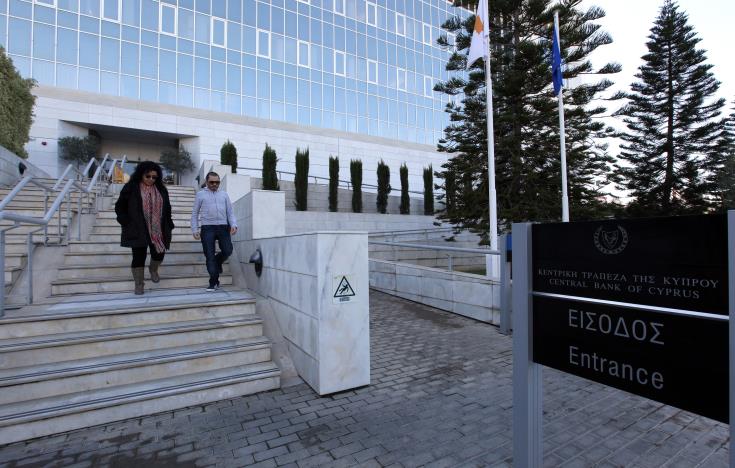Cyprus’ banking sector is in the best position it has been over the last decade, experts said at the 19th Annual Economist Summit.
The experts highlighted, however, the importance of implementing the foreclosure framework to combat NPLs.
Officials stressed that the European banking sector shows resilience despite the hike of interest rates and the many challenges of the last few years, like the pandemic, the war in Ukraine, high inflation, an energy crisis and the recent developments in the Middle East.
EU banking sector
Elizabeth McCaul, member of the supervisory board of the European Central Bank, noted that, overall, the EU banking system remains resilient.
Banks under the ECB’s supervision have comfortable capital and liquidity ratios.
The average CET1 ratio of significant institutions stood at 15.7% in 2023 Q2.
She added that bank profitability is also up, with an annualised return on equity up by 10%, compared to 7.6% a year ago, primarily due to rising net interest rate margins.
“From a financial stability point of view, these increases are very much welcome.”
McCaul said the results of recent stress tests of the European banking sector show the banking system could withstand even a severe economic downturn.
However, she warned against complacency.
“Banks need to remain vigilant and continuously monitoring and adapting their risk scenarios; they have to be open, to be able to have a clear line of sight into vulnerabilities of the overall economy and understand that it’s a fast-moving macroeconomic environment that they are operating in.”
McCaul pointed out that in the bottom line, the banking sector remains resilient in the current environment of elevated interest rates, “but we also know that there is weaker lending growth and we see rising funding costs, and we see asset quality deterioration as areas that might pose outside risk to banks profitability going forward”.
She said lessons learnt from the 2010 crisis have been built into the regulatory framework.
“The key is to not forget those lessons. It’s important to keep following through on delivery of the requirements”.
Cypriot banking sector
Wim Van Aken, mission chief for European Stability Mechanism post-programme surveillance activities in Cyprus, said that most economic outlook projections were made before the recent Gaza developments that add pressure to inflation, weigh on the economic outlook and could impact growth.
Despite this growing economic uncertainty, the economy has shown resilience, Van Aken said, noting that this is true for the euro area and Cyprus.
He said Cyprus has enjoyed a strong economic performance, and the economic projections remain relatively robust.
They are higher in terms of growth than the euro area average, and average inflation is projected to drop significantly in 2023 and go lower than in the euro area.
Cyprus has also been fiscally prudent and able to create fiscal space.
Van Aken noted that this results from the cautious use of energy measures to support households while also noting that public debt in Cyprus continues to decline.
He underlined that in Cyprus, the banking sector reported the strongest position in a decade.
“Higher rates have boosted earnings, they drive solvency ratios above the euro area average, and, so far, assets’ quality has remained resilient.
“Since the financial crisis, Cypriot banks have significantly de-risked their balance sheets.”
However, he stressed that while the reduction of legacy NPLs in Cyprus has significantly impacted banks’ balance sheets, they remain high compared to the EU average.
He said that NPLs outside the banking system remain very high and weigh on banks’ new lending opportunities and profitability, as borrowers cannot return to banks as viable clients.
“NPLs resolution in Cyprus critically depends on the effectiveness of the foreclosure framework.
“Numerous legislative proposals that could undermine the effectiveness of the foreclosure framework and the lack of its implementation are concerning”.
On the other hand, he pointed out that Cyprus returning to investment grade by all major rating agencies was “a major achievement and a moment of celebration for the country”.
“It means that Cyprus’ governments need to continue using this space in order to keep the positive momentum.
“That means continued efforts of fiscal responsibility, a stable financial sector and reform implementation under the country’s reform plan.”
Investing in modernising the economy through digital technologies and innovations is essential in the long term.
“To preserve future economic growth in Cyprus, early adaptation actions regarding climate change are important for the economy’s resilience.”
Profitability will not last
Simon Ainsworth, an associate managing director co-responsible for Moody’s EMEA Insurance ratings, said that elevated core inflation means that central banks cannot yet be certain they have achieved their mandate.
“We expect restrictive policy stunt to be maintained throughout next year”.
He noted that the ECB’s monetary policy has been effective so far, with deposits and lending rates leading banks to tighten their lending criteria.
He agreed the Cypriot economy remains resilient despite external shocks. “Moody’s expects a GDP growth of 2.8% next year”.
“Cyprus’ small and saturated banking sector, the banks’ small loan book and low fee income component will limit their long-term business and profit growth opportunities in the domestic market.”
On the upside, he said that in Cyprus, where residual assets remain high, initial indications are of a limited impact on Cypriot banks’ asset quality.
“An improved profitability, which we think is likely to peak next year, will fade away over time.”
Ainsworth argued that conservative loan appetite might limit banks’ role in facilitating growth.










